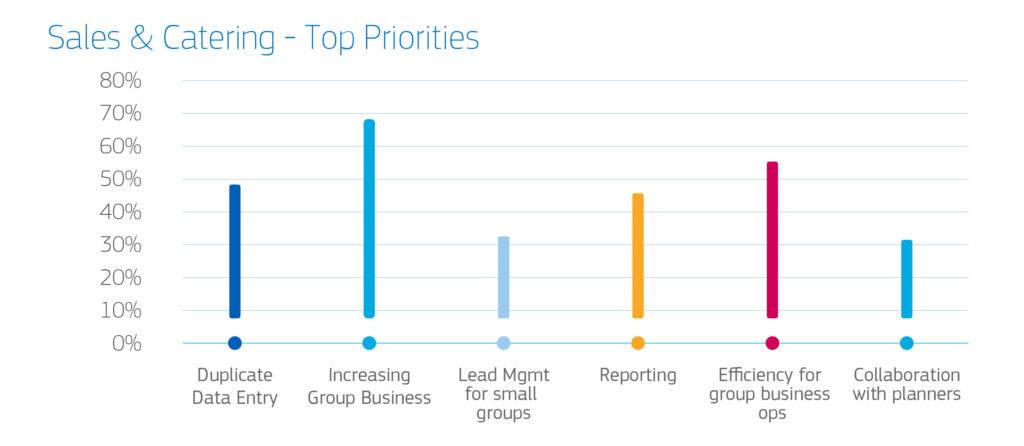
Leverage technology to put customers first, make smarter business decisions, and deliver on your brand promise.
The hospitality industry continues to grow at a record setting pace. New hotel construction in the United States was up nearly 12% in 2017 compared to the year before, with 65% of that construction dedicated to properties in the Limited Service sector.[1] Travelers are easily lured in by the budget friendly room rates, sleek modern design, and unique amenities. The soaring demand has chains eager to continue building. Limited Service hotels are considered low risk by developers because they are affordable to build and potentially offer a better return on investment since they’re designed to run at a low cost.[2]
With more supply coming to market, hoteliers need to think about how to stand out from the competition. It will take more than just meeting guest expectations. Hotels will have to find ways to exceed expectations outside traditional guest touch points (such as check in/out) if they hope to inspire repeat business.
Technology as a differentiator
One way Limited Service hotels can differentiate is by capitalizing on non-room revenue streams. Is there conference or meeting room space available to rent out? Can a terrace, patio, or lounge be monetized to stage small events? What if you held a weekly wine and cheese party or karaoke night for a nominal admission which you could them seamlessly charge back to a guest’s room? With a little bit of imagination, hotels can find a number of ways to offer memorable experiences while delivering on their brand promise.
Since transient, volume contract, and group bookings remain the three main client groups for Limited Service hotels, each requires a different approach (and sometimes technology) for the full profit potential to be realized. In addition to increasing group business overall, our recent LinkedIn survey of approximately 300 hospitality professionals shows a strong desire to increase efficiency around group business operations.

Technology as an enabler
The right technology can provide the structure for a successful business. The goal of hospitality solutions shouldn’t be to remove the human element between staff and guests– but to simply enhance the quality of the interactions overall. Here are three ways technology can help your staff and business operate at peak performance:
- Automation: Innovations have advanced the digital capabilities in the request for proposal (RFP) process. Since Limited Service hotels don’t have the same time, money, or resources to dedicate towards responding to RFPs, business rules can be set in place so hotels can expose inventory directly online, allowing small group meetings to be booked directly through the website rather than managing the RFP process.
- Training: In order to get the most out of hotel technology, the staff has to be trained quickly, accurately and efficiently. Since Limited Service properties have much smaller teams that are expected to carry out a wider variety of high priority tasks and within these teams they tend to have a higher turn-over rate than Full Service properties, they require tools that are intuitive and streamlined to maximize usability.
- Enhanced digital presence: Planners are multi-tasking now more than ever before, juggling more events with less time. Promoting your hotel’s meeting space online, either through your own website, or a third party channel is key. But that’s not all. Social media and positive word of mouth is extremely helpful to winning business. A recent study by Cvent found that the most popular source of information for planners is other planners – peer recommendations ahead of online reviews.[3] This reinforces the fact that the on-property experience of the planner and those attending the event must never be overlooked.
For more information on how our solution for Limited Service hotels is helping properties effectively manage their group business, customer relationships, and profitability, click here.
Download our study to learn more about how Limited Service hotels are leveraging technology to increase revenue, reduce costs, and satisfy their customers.
[1] http://hotelnewsnow.com/Articles/151263/STR-US-hotel-pipeline-for-June-2017
[2] http://www.nreionline.com/hotel/upscale-limited-service-hotels-are-all-rage-among-developers
[3] http://www.cvent.com/en/company/new-study-reveals-planners-want-speed-and-accuracy-in-rfp-responses.shtml






